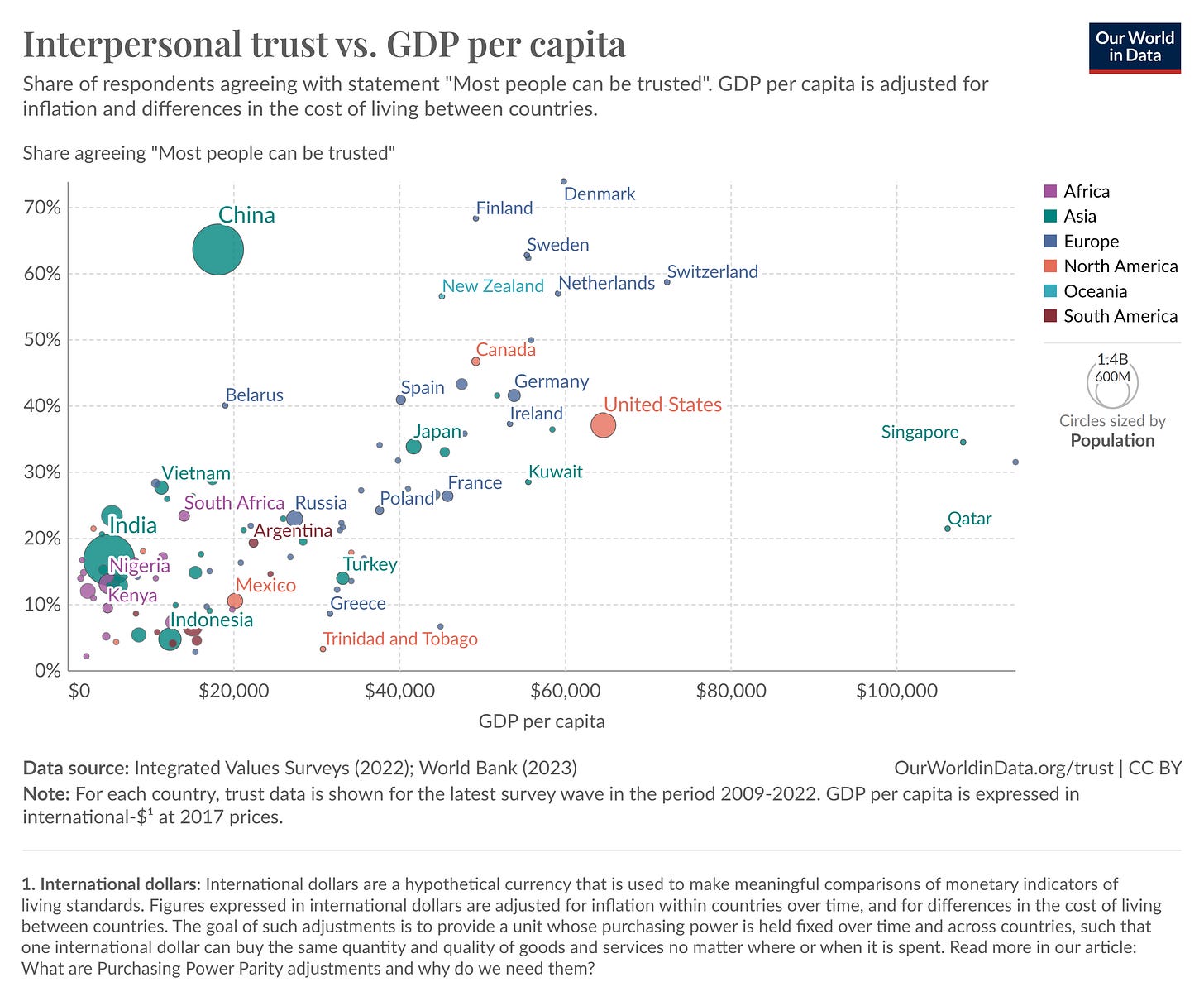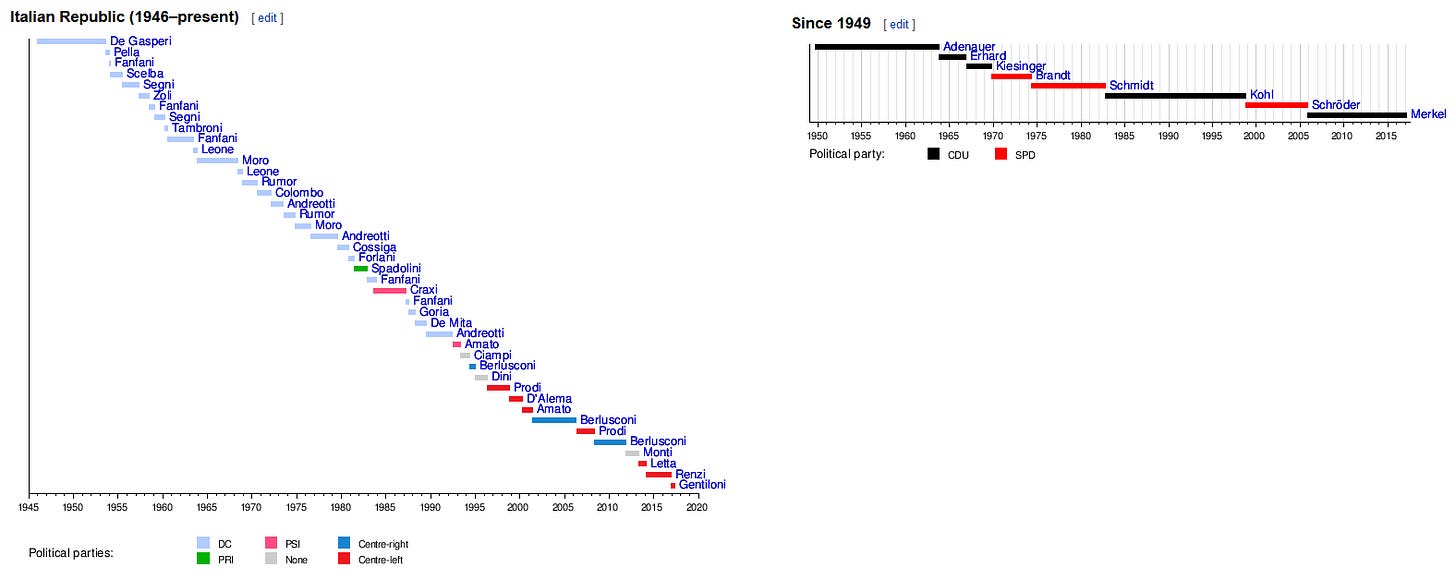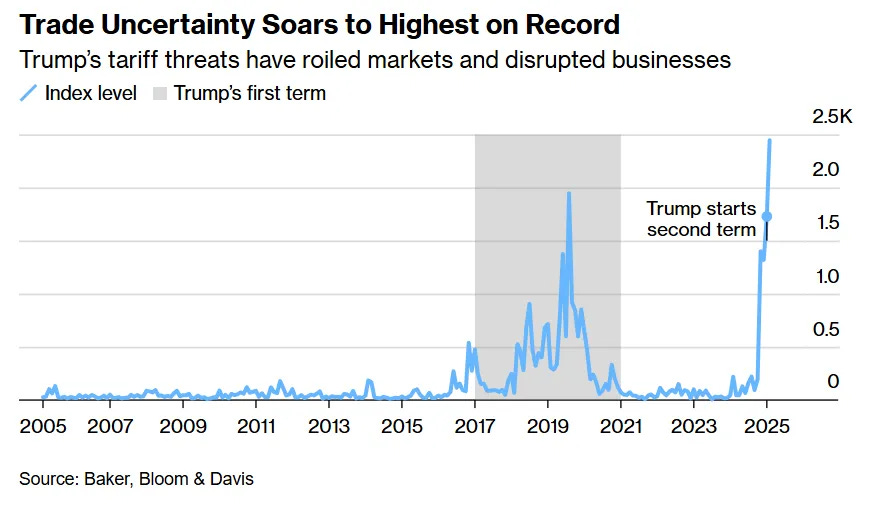I don’t like where the world’s going. I love politics, I love debates, I love discussions, and I don’t see any of this anymore around me.
How did the West become so polarized? I believe it’s because we stopped growing.
My Irish friend Chris was too busy firefighting comms disasters to edit this one, so please bear with me!
Low productivity growth means low economic growth. […] Low economic growth also means the rise of smashmouth zero-sum politics, as gains for one group of people necessarily require taking things away from other people. Zero-sum politics lead to corrosion of the national spirit of opportunity and growth.
Europe’s fundamental values are prosperity, equity, freedom, peace and democracy in a sustainable environment. […] If Europe can no longer provide them to its people – or has to trade off one against the other – it will have lost its reason for being. The only way to meet this challenge is to grow […]
These two quotes seem written by the same author, but they are not. Very different people wrote them: the first one is from Marc Andreessen and Ben Horowits’ “The Little Tech Agenda”, while the second comes from Mario Draghi’s report “The Future of European Competitiveness”.
When people of this caliber not only acknowledge the existence of a problem (zero-sum politics) but also agree on the cause of that problem (lack of growth), then we need to look deeper into what’s happening.
In the last years, I’ve grown more and more concerned about the polarization of our societies. I’ve asked myself what causes a country or a continent to polarize the way the Western World has done. However, I realize now that polarization is impossible to solve without addressing the real root cause, which is zero-sum politics.
A perfect society does not exist, because societies are not static. There is always something to fix, something to change, because the needs of the people living in said society change with time. Fixing and changing things usually requires investments, and here is where things break: without growth, giving to someone means taking from someone else. This is the only thing politics can do when the pie stops growing.
As the Latin said “mors tua, vita mea”, your death is my life: this is what causes polarization.
Polarization is bad because it destroys interpersonal trust, and interpersonal trust in a country is shown to be correlated to GDP per capita.
Lack of interpersonal trust is bad, but lack of trust in those who govern might be even worse.
I come from a country, Italy, that has notoriously short-living governments.
Political satire aside, short governments equal instability, and instability means that you can’t rely on political decisions too much.
If I want to invest my time and money in a country, I want to be sure that the rules of the game don’t change 6 months after I have committed to it. Not trusting those who govern the country is notoriously bad for business, but when societies are polarized this is even worse.
Ideally, the outcome of a democratic parliamentary process should be laws to which both the majority and the minority have contributed. When the governments that follow one another are expression of diametrically opposed views, however, the newly elected government will have to do what it promised to its electors - destroy everything the previous one did.
Isn’t it what it is happening right now in the US? I guess it’s not by chance that trade uncertainty has soared since elections in 2024.
Finally, polarization is bad because instills a “my side vs your side” mentality - which makes us overlook bad things when done by our side
And the villains have a lot of practice using normal people’s flaws to divide them. When society is politically divided, power-hungry people exploit those divisions to rise to the top — we tell ourselves “He may be a bad guy, but he’s a bad guy on my side.” At least Hitler will fight the communists; at least Stalin will keep the capitalists at bay.
This mentality is very dangerous, because “villains” have no loyalty, no ethics, and no friends, they only have their bank account and hunger for power.
Politically divided societies are the primordial broth of dictatorships and wars - and we are getting a taste of it.
Coming back to the original question, how do we prevent all of this? The best way to solve this mess is growth. When the pie is growing, everyone can have it’s piece and more.
Growth is hard, and requires long-term planning.
How do we make sure European companies don’t overpay for energy?
How do we bring back manufacturing on our soil, when China has become so efficient in producing things?
How do we deal with tariffs without turning our best (and most powerful) ally into an enemy?
How do we make the workforce more efficient to cover for the aging population? How do we build stuff when we don’t control the supply chain of the materials needed to build stuff?
How do we build enough chips for AI to fulfill its promises?
I think these questions make current politicians uncomfortable because they require long-term planning, and polarized audiences are not receptive to long-term plans.
Without being too naive, and keeping in mind that investors are in this game to make money and are not philanthropists, I still think the private sector could do better in allocating capital.
Do we really need another AI website maker, or chatbot for customer support, or automated SDRs? Could we take some time to understand which technologies will be absolutely essential in the future, and allocate capital towards solving these big problems?
I think we can, and we should.







